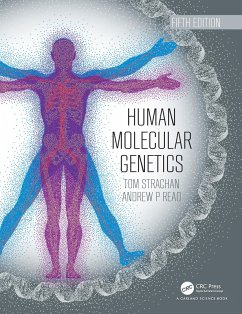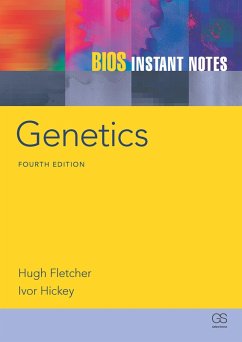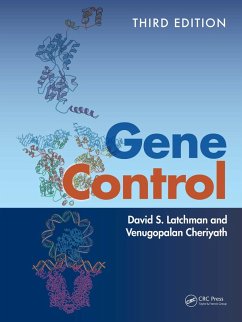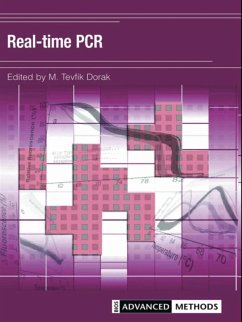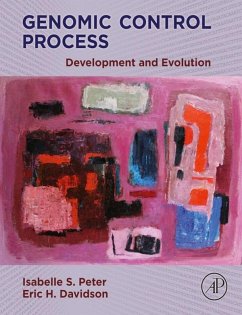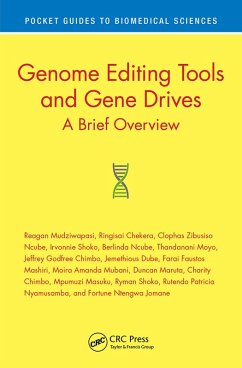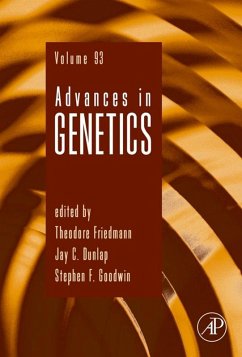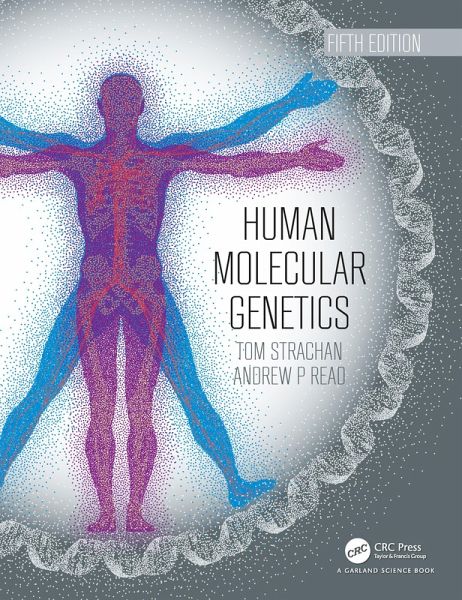
Human Molecular Genetics (eBook, ePUB)
Versandkostenfrei!
Sofort per Download lieferbar
78,95 €
inkl. MwSt.
Weitere Ausgaben:

PAYBACK Punkte
39 °P sammeln!
Human Molecular Genetics has been carefully crafted over successive editions to provide an authoritative introduction to the molecular aspects of human genetics, genomics and cell biology.Maintaining the features that have made previous editions so popular, this fifth edition has been completely updated in line with the latest developments in the field. Older technologies such as cloning and hybridization have been merged and summarized, coverage of newer DNA sequencing technologies has been expanded, and powerful new gene editing and single-cell genomics technologies have been added. The cove...
Human Molecular Genetics has been carefully crafted over successive editions to provide an authoritative introduction to the molecular aspects of human genetics, genomics and cell biology.
Maintaining the features that have made previous editions so popular, this fifth edition has been completely updated in line with the latest developments in the field. Older technologies such as cloning and hybridization have been merged and summarized, coverage of newer DNA sequencing technologies has been expanded, and powerful new gene editing and single-cell genomics technologies have been added. The coverage of GWAS, functional genomics, stem cells, and disease modeling has been expanded. Greater focus is given to inheritance and variation in the context of populations and on the role of epigenetics in gene regulation.
Key features:
A proven and popular textbook for upper-level undergraduates and graduate students, the new edition of Human Molecular Genetics remains the 'go-to' book for those studying human molecular genetics or genomics courses around the world.
Maintaining the features that have made previous editions so popular, this fifth edition has been completely updated in line with the latest developments in the field. Older technologies such as cloning and hybridization have been merged and summarized, coverage of newer DNA sequencing technologies has been expanded, and powerful new gene editing and single-cell genomics technologies have been added. The coverage of GWAS, functional genomics, stem cells, and disease modeling has been expanded. Greater focus is given to inheritance and variation in the context of populations and on the role of epigenetics in gene regulation.
Key features:
- Fully integrated approach to the molecular aspects of human genetics, genomics, and cell biology
- Accessible text is supported and enhanced throughout by superb artwork illustrating the key concepts and mechanisms
- Summary boxes at the end of each chapter provide clear learning points
- Annotated further reading helps readers navigate the wealth of additional information in this complex subject and provides direction for further study
- Reorganized into five sections for improved access to related topics
- Also new to this edition - brand new chapter on evolution and anthropology from the authors of the highly acclaimed Human Evolutionary Genetics
A proven and popular textbook for upper-level undergraduates and graduate students, the new edition of Human Molecular Genetics remains the 'go-to' book for those studying human molecular genetics or genomics courses around the world.
Dieser Download kann aus rechtlichen Gründen nur mit Rechnungsadresse in A, B, BG, CY, CZ, D, DK, EW, E, FIN, F, GR, HR, H, IRL, I, LT, L, LR, M, NL, PL, P, R, S, SLO, SK ausgeliefert werden.




